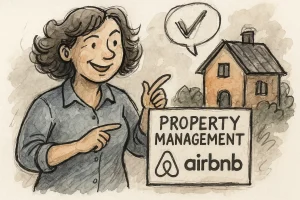
Many people look at residential cleaning services and see only routine tasks and repetitive work. But if you look closer, you’ll notice a solid, resilient market with great profit potential. Professional residential cleaning goes far beyond sweeping and mopping — it’s a service that combines efficiency, reliability, and attention to detail, meeting the growing demand for time and comfort in busy households.
In this article, we will explore the residential cleaning market, explain how this business works step by step, analyze its financial potential, present practical strategies for entering the market, and provide valuable insights for entrepreneurs and investors looking for underestimated opportunities. You will see how an apparently “ordinary” sector can become a goldmine when approached strategically.
Market Overview
The residential cleaning market is far from saturated. Although many consider cleaning services common and unglamorous, the reality is that demand is constant, resilient to economic downturns, and highly fragmented.
Some trends driving industry growth:
- Modern lifestyles: Busy families, high-demand professionals, and people valuing free time increasingly turn to professional cleaning services.
- Health and hygiene: Greater awareness of household hygiene, especially post-pandemic, has increased demand for deep and specialized cleaning.
- Personalized services: Clients seek customizable packages, such as eco-friendly cleaning, delicate surface care, organization, and regular maintenance.
- Technology and digital marketing: Online platforms and scheduling apps make it easier to connect clients with service providers.
Additionally, the sector allows multiple operating models, whether as a small independent business, franchise, or service network, offering scalability and revenue diversification.
How the Business Works, Step by Step
- Define the business model: Choose between one-time services, recurring packages, deep cleaning, or specialized services.
- Training and standardization: Ensure all professionals know techniques, cleaning protocols, and safety standards.
- Acquire equipment and materials: Cleaning products, vacuum cleaners, mops, cloths, disinfectants, gloves, and uniforms. Optionally, invest in specialized equipment for premium services.
- Strategic pricing: Consider time required, home size, service frequency, material costs, and desired profit margin.
- Marketing and client acquisition: Social media, referrals, partnerships with real estate agencies, domestic service apps, and presence on review platforms.
- Service execution: Meet quality standards, respect schedules, demonstrate professionalism, and build client trust.
- Quality control: Continuous feedback, checklists of completed services, and monitoring customer satisfaction.
- Operational and financial management: Organize schedules, manage staff, control inventory, and track revenue and profitability.
- Expansion and loyalty: Offer additional services, loyalty programs, and personalized packages to create recurring revenue.
Why Invest in This Business?
Investing in professional residential cleaning offers strategic advantages:
- Constant demand: Essential services with steady demand, regardless of economic crises.
- Quick return: Low initial investment compared to other businesses and the potential to generate profit within the first months.
- Flexible scalability: Start as an independent small business and expand to a team or franchise.
- Service diversification: Beyond basic cleaning, you can offer premium, eco-friendly, specialized, and maintenance services.
- Relatively low risk: Resilient business with low entry barriers, but client loyalty increases profitability and cash flow security.
Business Analysis Table
| Criterion | Rating (1 to 5) | Comments |
|---|---|---|
| Customers perceived value | 5 | Clients value comfort, safety, and reliability over price. |
| Required Knowledge level | 3 | Requires knowledge of cleaning techniques, safety, and team management. |
| Initial Investment level | 3 | Quality equipment and products are essential but scalable. |
| Potential profitability | 5 | High margins with recurring packages and premium services. |
| Growth potential | 5 | Expansion via in-house team, franchises, and complementary services. |
| Customer acquisition cost | 3 | Marketing and networking are key, but word-of-mouth is powerful. |
| Risk and challenges level | 3 | Dependence on reliable staff and quality control are challenges. |
| Estimated Time to payback | 1-2 years | With strategic planning, quick return in recurring service models. |
Business Model
- Value Proposition: Reliable, professional, and personalized residential cleaning, ensuring comfort and peace of mind for clients.
- Customer Segments: Families, busy professionals, rental properties, premium clients, homeowners of houses and apartments.
- Channels: Digital marketing, social media, service apps, real estate partnerships, word-of-mouth referrals.
- Customer Relationships: Personalized service, flexible scheduling, transparent communication, loyalty programs.
- Revenue Streams: One-time services, recurring packages, deep cleaning, premium services, maintenance contracts.
- Key Resources: Trained staff, cleaning equipment, materials, uniforms, management and scheduling software.
- Key Activities: Service delivery, team management, quality control, marketing, customer relationship management.
- Key Partnerships: Cleaning product suppliers, real estate agencies, scheduling apps, home maintenance companies.
- Cost Structure: Staff salaries, equipment and maintenance, cleaning supplies, marketing, transportation, and insurance.
Strategies to Enter the Market
- Identify specific niches: Premium cleaning, eco-friendly hygiene, post-construction cleaning, or home organization.
- Focus on loyalty: Recurring packages and complementary services ensure steady revenue.
- Targeted marketing: Use social media, community groups, and local partnerships to reach potential clients.
- Training and standardization: Ensure consistent services and high customer satisfaction.
- Automation and technology: Scheduling apps, customer CRM, and financial control software for operational efficiency.
Practical Tips and Tools
- Management software: Trello, Notion, Monday.com to organize teams and tasks.
- Scheduling apps: Handy, Thumbtack, or custom app development.
- Digital marketing: Facebook Ads, Google My Business, Instagram Ads, and local SEO.
- Continuous training: Courses on advanced cleaning techniques, eco-friendly products, and customer service.
- Financial control: Software like QuickBooks or customized cash flow spreadsheets for domestic services.
Conclusion
Professional residential cleaning is a classic example of an underestimated business offering concrete profit and expansion opportunities. With strategic planning, attention to quality, and a focus on client loyalty, it is possible to turn an everyday service into a solid, scalable, and profitable enterprise. This market proves that the flashiest businesses are not always the most lucrative — sometimes, real gold is found in the ordinary.
Call-to-Action
If you want to explore a solid, resilient market full of opportunities, start structuring your residential cleaning business today. Invest in training, organize your team, standardize processes, and gain clients who value quality and trust. This sector is ready for those who look beyond the obvious.







